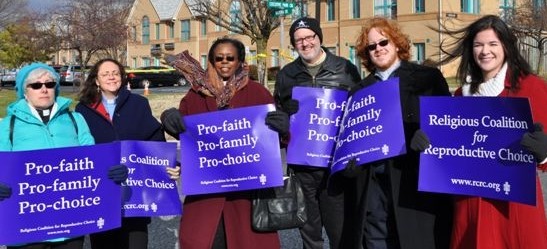The concept of being religious and pro-abortion is one which has been discussed plenty before. For many, the view is a contradictory one, but not for all. The Religious Coalition for Reproductive Choice is a particularly vocal abortion advocate, with nearly 30 coalition members. It will soon have two less members though, thanks to a vote from the United Methodist Church.
As the Institute on Religion & Democracy announced on Thursday, United Methodists voted, 425 to 268 (61 to 39 percent), to require church boards and agencies to withdraw immediately from RCRC.
The vote took place during a General Conference meeting in Portland, Oregon, with the proposal voted on by delegates from across the denomination.
Delegates went even further, voting 561-197 (74-26 percent) to delete a previous resolution that affirmed the work of RCRC.
The rationale for the proposal does not hold back against RCRC, noting it:
is a one-sided political lobby that opposes all disapproval or limitation of abortion. RCRC’s advocacy often directly contradicts our Social Principles on abortion, but it still uses our Church’s name. Several annual conferences and many United Methodist leaders have urged the Church to end all association with RCRC.
The RCRC website currently lists the General Board on Church and Society (GBCS) and United Methodist Women (UMW) as coalition members.
John Lomperis, the United Methodist Action Director for the IRD and a General Conference Delegated noted that the RCRC’s pro-abortion views go against the church teachings:
There is nothing moderate or nuanced about RCRC, which has consistently lobbied to defend grisly ‘partial-birth’ abortions, even after our Social Principles included a statement ‘call[ing] for the end of this late-term practice’.
“In contrast to the United Methodist Church, RCRC dismisses the value of unborn human life. RCRC even promotes rituals to bless all the work of elective abortion clinics, describing aborting unborn children as always ‘holy work.’
Lomperis also called the move “a necessary and good step towards affirming that the unborn are persons of sacred worth.”
The organization’s “Access to Abortion Care” section on the website reads similarly to other pro-abortion views, but with a religious viewpoint. It also noticeably no longer wants abortions to be rare, but rather wants “equal access to safe, legal and moral abortion care.”
Lomperis spoke with Live Action News about how this was actually over a decade in the making, as he has “been working for this for 15 years.” He described it as “a bubbling up, bottom-up effort, with only indifference or outright opposition, from the most part, from every sector of the denominational establishment.”
This news is a breath of fresh air from the March for Life for 2015, when a United Methodist Church leader publicly mocked the pro-life gathering, as Live Action News reported.
The effort received opposition, including from a General Board of Church & Society staffer, of the Church, and “parliamentary dirty tricks to try to derail the petition or prevent it from getting a fair hearing. But, “none of those succeeded,” Lomperis shared, who credits God with their victory.







